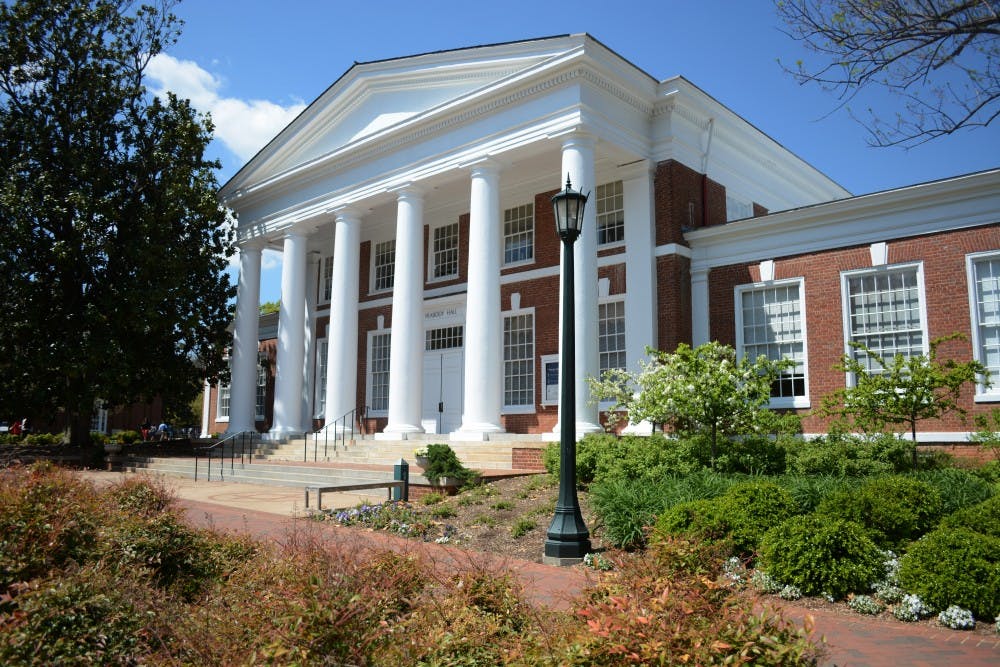The University received 16,185 early action applications this year — the highest volume recorded since 2011, when the option was first added to the application.
Dean of Admissions Greg Roberts said the early action program was first implemented to draw a more diverse group of applicants.
“The reason we moved to early action was because we believed it would attract the most diverse population of students,” Roberts said. “I think it’s the most student-friendly early plan. It allows for students to receive a decision before they have to commit before receiving financial aid.”
Roberts said this model has proved fruitful thus far, with the early action applicant pool becoming increasingly diverse each year. According to a University press release, early applications from African American, first-generation, international and minority student populations have all increased in recent years.
Though the admissions office had anticipated the initiative would increase diversity of applicants, Roberts said they underestimated how popular the option would be overall.
Students often choose to apply early action because they believe it gives them a competitive advantage.
First-year Engineering student John Kretzschmar said he thought applying during the early action window would increase his chances of being offered admission.
“I applied early action because I wanted to get into college earlier and I thought that it would give me a better opportunity to get in,” Kretzschmar said.
But early action applicants are reviewed with the same level of scrutiny as all other applicants, according to a “Notes from Peabody” blog post written by Jeannine Lalonde, a senior assistant dean of admissions.
“I completely understand this thinking since it is true for some schools,” Lalonde said. “There are plenty encouraging very early submission of applications these days. At U.Va., we have the same review process for the entire application season.”
Roberts concurred, saying the early action applicant pool is actually more competitive than the regular decision pool.
“It’s a stronger pool academically, when one considers testing and performance in the class,” Roberts said. “It’s a significantly stronger pool of students.”
Roberts said aside from trying to gain a competitive advantage, students apply early so they can receive admissions decisions more promptly.
“[Early action] benefits the students applying because they can receive an earlier decision which alleviates some anxiety and stress, I would imagine,” Roberts said.
First-year College student Jordan Harris said he agreed with this sentiment.
“I think it is better to know sooner rather than later,” Harris said.
Applying through the early action program also gives students a longer period to consider enrollment options and make a final decision.
First-year College student Kara Wertz said this factor is what encouraged her to submit an early action application.
“I applied to everywhere I could early action, so I could see my decisions as early as possible and would have as much time to make my decision,” Wertz said.
Just as it is for students, Roberts said the early action admissions option is beneficial for the University.
“[Early action] benefits the University because we can build relationships with students earlier when they are admitted in January than students who are admitted in April,” Roberts said.
But early action applications are not for everyone. Lalonde, in a September blog post, advised students to apply early action only if they are in a strong place academically and do not need to rely on additional senior year grades.
“If you think you had an amazing junior year and your application is rock solid without the first semester of senior year on your transcript, consider applying early,” Lalonde wrote on the blog. “If you had a little stumble early on in your junior year (which sometimes happens when you step up the number of advanced classes in your schedule), maybe you should apply under Regular Decision, when we'll have some senior grades to consider (my expectation is that you rebounded in a big way).”
Roberts said he was not sure which percentage of this year’s early action applicant pool would be offered admission. Last year, 51 percent were accepted.







